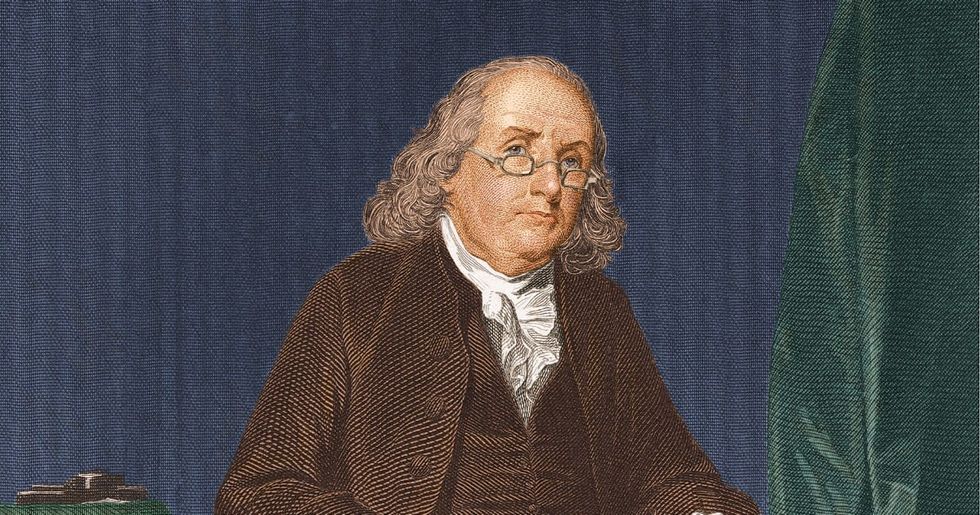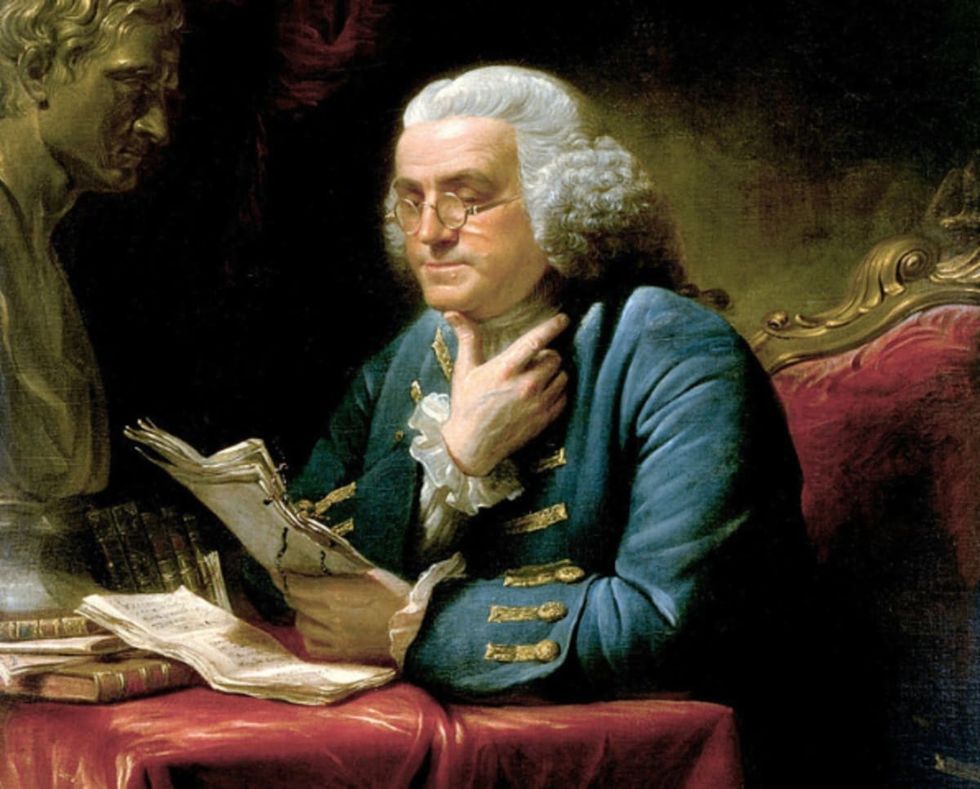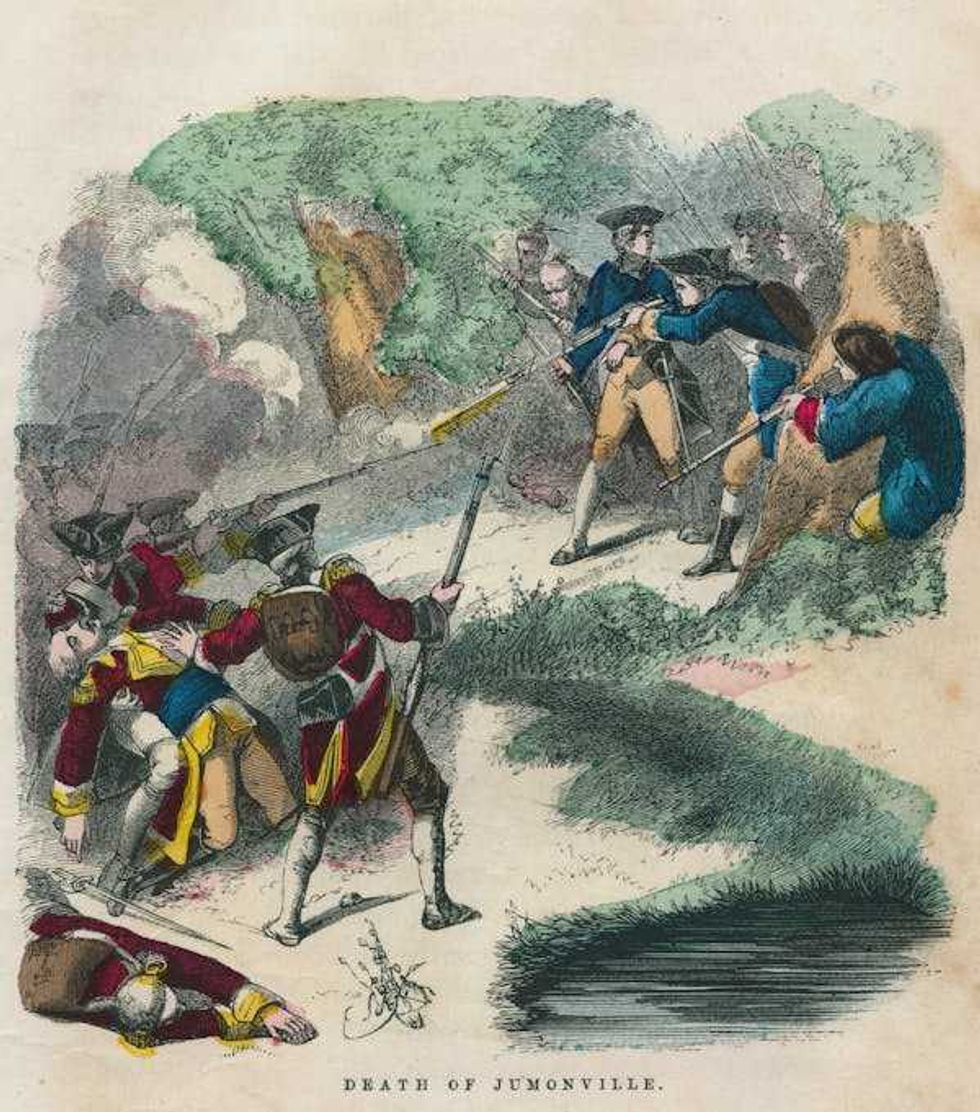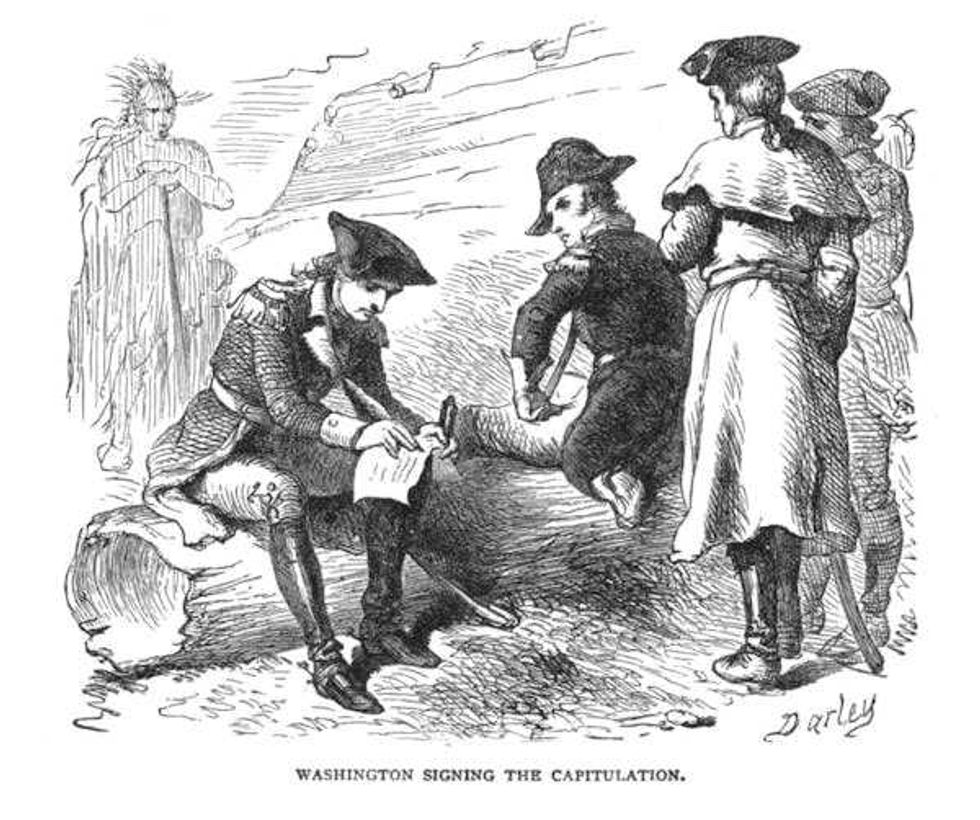Flatulence is a totally normal part of human biology but and has always been a taboo topic. So, when a scientist wrote an essay about it in the 1780s, he left the world puzzled, as well as, surprised. It was Benjamin Franklin, one of the Founding Fathers of the United States, who presented his honest opinion on farting with a dash of humor in an essay.

In his draft, he also hilariously urged experts to invent a product that would make farts smell like perfumes, as per Teaching American History. It all started when the Royal Academy of Brussels, which started in 1772, posed a question that they thought was intellectually important and had a "practical value" for participants to answer. It was a mathematics question asking how to determine the greatest number of smaller figures that could fit inside a given geometric figure. Franklin had termed the question "absurd" and had a sarcastic response to this question. He decided to write a letter addressing the topic of farting and talked about its significance.
Franklin started the essay by requesting the academy to consider his proposal and if approved, then allow it to be enquired by "learned physicians, chemists, & c. of this enlightened age." He wrote, "It is universally well known that in digesting our common food, there is created in the bowels of human creatures, a great quantity of wind." He added that usually it is considered "offensive" to let out the fart because of its foul odor.
Franklin also talked about how one should not try to suppress a fart as it would bring in health hazards as in his words in the letter, "That so retained contrary to nature, it not only gives frequently great present pain, but occasions future diseases, such as habitual cholics, ruptures, tympanies, &c. often destructive of the constitution, and sometimes of life itself." He then highlighted the fact that because of the foul odor, people are likely to avoid letting it out. According to Franklin, if these odors are not foul in nature, they will be happily released without any shame.
With a tinge of humor, Franklin suggested that well-mannered individuals refrain from releasing this gas in a social environment to avoid offence and embarrassment. He later proposed the idea of finding a drug or additive to food "that shall render the natural discharges of wind from our bodies, not only inoffensive but agreeable as perfumes."
Franklin talked about how certain food items influence bodily odors and therefore, suggested that altering diet or consuming certain substances might change the smell of the fart. He also humorously compared and took a dig at how our farts could have a better smell than our urine as he says, "Why should it be thought more impossible in nature, to find means of making a perfume of our wind than of our water?"

Franklin, however, drew a bizarre yet funny comparison as he said that this comfort of farting without worrying is similar to witnessing a scientific discovery. "The pleasure arising to a few philosophers, from seeing, a few times in their life, the threads of light untwisted, and separated by the Newtonian prism into seven colors, can it be compared with the ease and comfort every man living might feel seven times a day, by discharging freely the wind from his bowels."
Emphasizing the absurd nature of the discussion, Franklin ended the essay with a pun, suggesting that the intellectual topics addressed in the letter are equivalent to a "F A R T-H I N G" (a small British coin).


















 The Jumonville affair became the opening battle of the French and Indian War.
The Jumonville affair became the opening battle of the French and Indian War. Washington was outnumbered and outmaneuvered at Fort Necessity.
Washington was outnumbered and outmaneuvered at Fort Necessity. A log cabin used to protect the perishable supplies still stands at Fort Necessity today.
A log cabin used to protect the perishable supplies still stands at Fort Necessity today.
 Europa Regina (1570).
Europa Regina (1570). The ‘Military Mapping Maidens’ created tens of thousands of maps during World War II.
The ‘Military Mapping Maidens’ created tens of thousands of maps during World War II.
 As mayor of Stockton, Calif., Michael Tubbs ran a pioneering program that provided a basic income to a limited number of residents.
As mayor of Stockton, Calif., Michael Tubbs ran a pioneering program that provided a basic income to a limited number of residents. Martin Luther King Jr. believed Americans of different racial backgrounds could coalesce around shared economic interests.
Martin Luther King Jr. believed Americans of different racial backgrounds could coalesce around shared economic interests.
 Image frmo Scientific Reports of ancient artwork. Image Source:
Image frmo Scientific Reports of ancient artwork. Image Source:  Image frmo Scientific Reports of ancient artwork.Image Source:
Image frmo Scientific Reports of ancient artwork.Image Source:  Image frmo Scientific Reports of ancient artwork.Image Source:
Image frmo Scientific Reports of ancient artwork.Image Source: 

 It's difficult to imagine seeing a color and not having the word for it. Canva
It's difficult to imagine seeing a color and not having the word for it. Canva
 Sergei Krikalev in space.
Sergei Krikalev in space. 